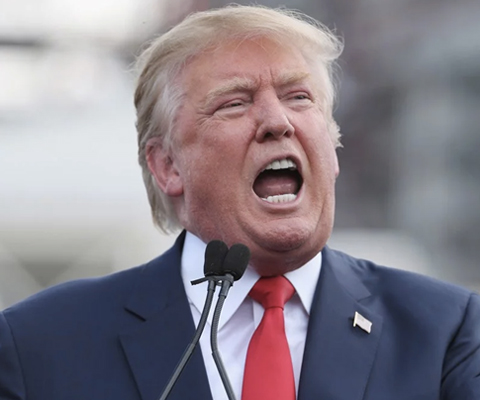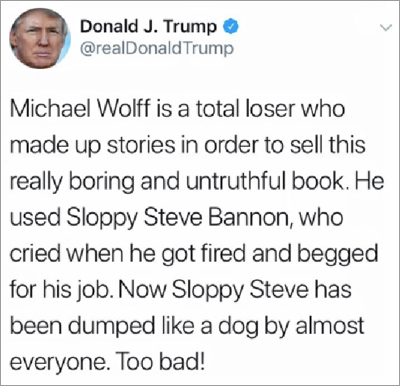How social media has changed the role of the CEO and their spokesperson
PR Insight
Paarul Chand
 In my years as a foreign affairs correspondent in the late 90s’, the real briefing was always done by the government spokesperson after the presser, this was called deep background. As a newbie TV hack, you knew you had arrived when the ‘Ministry of External Affairs’ spokesperson told you to stay on for the deep background briefing.
In my years as a foreign affairs correspondent in the late 90s’, the real briefing was always done by the government spokesperson after the presser, this was called deep background. As a newbie TV hack, you knew you had arrived when the ‘Ministry of External Affairs’ spokesperson told you to stay on for the deep background briefing.
From this, to an age where CIA tweets, and in a world where we have President Trump as spokesperson of the ‘developed’ world, the spokesperson’s role has changed completely. Instant, opinionated and accessible is the way of the social media spokesperson. And now, video has added yet another layer to the demands on a spokesperson.
Says Glen Lobo, account executive, Adfactors PR, “Videos are highly influential. Nowadays the trend is for short videos of about 3 minutes each, which conveys the same message as a newspaper but with a much higher impact and viewership. Spokespersons can now create their own videos and upload them on the internet, on websites like Youtube.com. For example, you will find dozens of short videos explaining, in simple terms, Bitcoins and how the cryptocurrency works.“
With video comes fresh spokesperson challenges. Sanchit Khera, director- FiveMV Marketing Consulting, comments that, “When text evolves to video, you can see body language and read micro-expressions intuitively. A disingenuous speaker can talk for hours and not be heard. A genuine spokesperson only needs a sentence.”
Amit Gundh, head — digital & social media strategy, Ruder Finn Asia, agrees opining that, “The other aspect of videos and social becoming popular is that a company’s or spokesperson’s public behaviour is always under scanner. No longer can spokespersons state one thing and practice just the other. It is therefore important that they live by the values they state. There are several examples of political leaders making public speeches or commenting on video where their quotes were not appreciated by public at large.”
This raises two important question, to what extent should the CEO and the C-suite, closely linked to the perception of a brand be the spokespersons? And to what extend are employees part of the outreach?
To begin with, social media means that spokespersons have to be always on, ready with an opinion.
Palin Ningthoujam, head – EXPD (digital & content marketing practice) Avian Media, says, “In yesteryears, spokespersons were required to speak out only when the media asked, or when they have something to announce.”
“Short 30 second explainer videos, either shot by self, or taken professionally where spokespersons talk about an issue or development is going to become more and more popular in 2018. Videos play on emotions, transparency and honesty and spokespersons using their charm to appeal to their audiences can do wonders.”
Palin Ningthoujam, head-EXPD, Avian Media
Ningthoujam adds, “Today, with social media, they are expected to have an opinion and voice on many key developments whether that be related to customers, employees, partners, or even national developments. If they don’t, they are often perceived as old-school.”
The best platform today is Twitter, which is now the perpetual cocktail party of the world. All the top politicians, government bodies, celebrities, sports starts, and corporate professionals are there on the platform and this is the place where you needed to be seen.
Employees as spokespersons
Gundh says that this pressure to be seen and ready with a quote, means that it is not possible anymore to stop employees from sharing content online or on social media using restrictive social media policies.
He suggests, “The best way is to educate them by social media sharing guidelines, explaining how content shared by them can positively or negatively impact the organisation”
Gundh adds that its also important to, “Communicate the organisation’s vision and values with them, be transparent in your approach towards your employees and most importantly, live and demonstrate the organisational values in your behaviour and actions internally and externally.”
The CEO speaks
“In my opinion, the CEO should be the spokesperson on topics related to the entire business and during critical business announcements.”
Priyanka Bhatt, founder and CEO, Equations PR and Media
V.V.Sundar, a communication and management professional, advises that, “The CEO needs to be sparingly used for strategic and financial performance related matters only. The rest of the day to day operational issues should be ideally handled by other designated officials activated at the time of ‘need’ to speak on behalf of the company with restricted role.”
The celebrity as spokesperson
One other change that has happened is the advent of the celebrity on social media, who now directly access the audience.
Senior editor and writer,Seema Pherwani, explains that, "A few years ago celebs routed all communication through the spokesperson. But somehow in today's Twitter, What's App and Facebook revolution, celebs have taken charge.They drive the conversations, reply directly to people and post passive aggressive messages. In fact, Twitter has been the site of choice for celebrity breakups, rants and feuds. Sometimes, the spokesperson has then to intervene and clarify on the part of the celebrity especially if the celeb has tweeted in anger.”
The biggest manifestation of this is, of course, celebrity President Donald Trump, who doesn’t hesitate to tweet his responses from everything to nuclear buttons to whether he is a genius or just plain unstable.
Here is how he spoke out against the book Fire and Fury, a book that now needs no introduction. Don’t hold back President Trump!

If you enjoyed this article, you can subscribe for free to our weekly event and subscriber alerts.
Featured

PR professionals share their views on journalists publicly calling them out on story pitches

Auto blogger renders unconditional apology to Value 360 for defamatory posts

Hottest Indian startups of 2020, Paytm, Dreams 11 lead the charge: Wizikey Report




